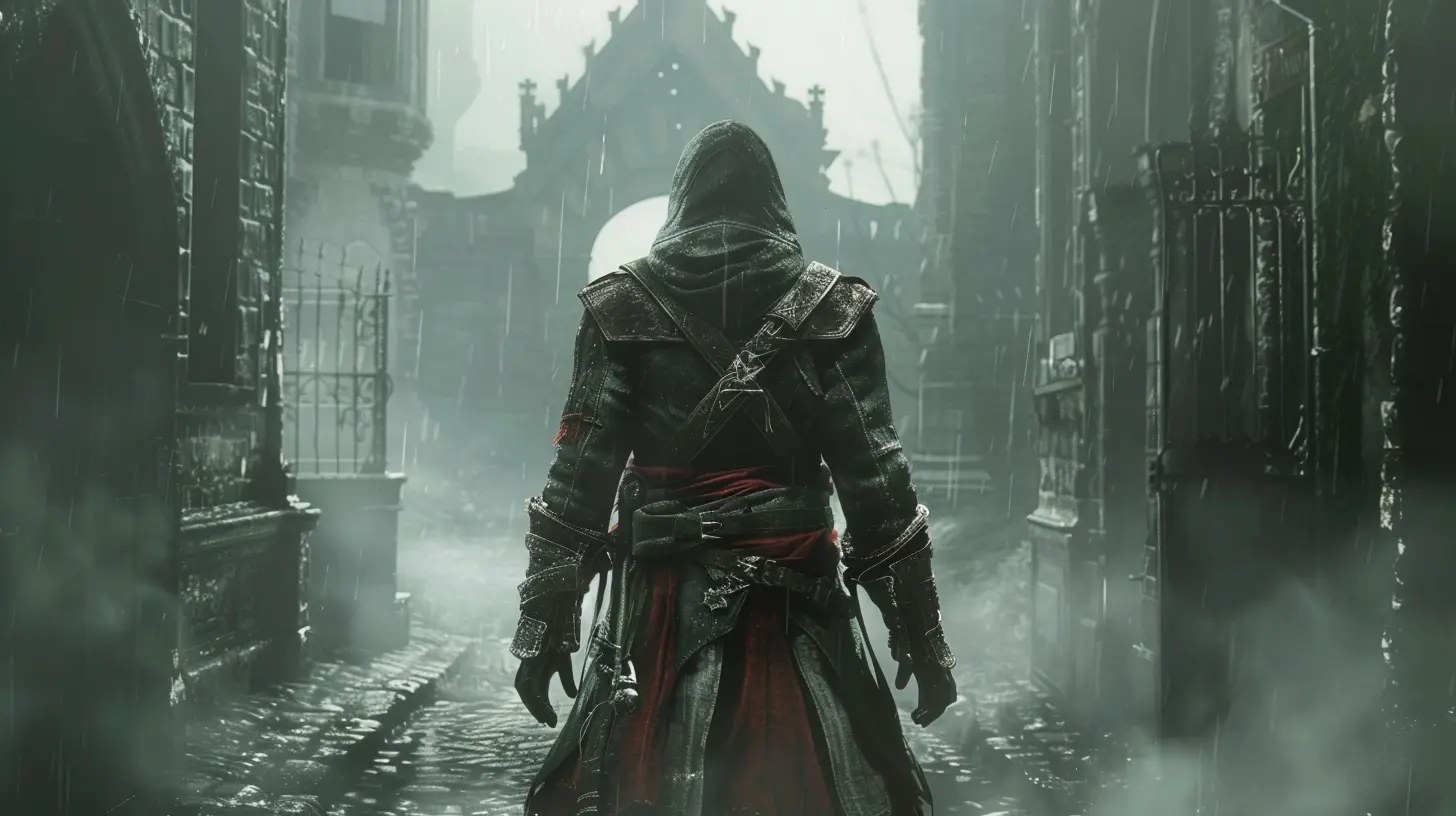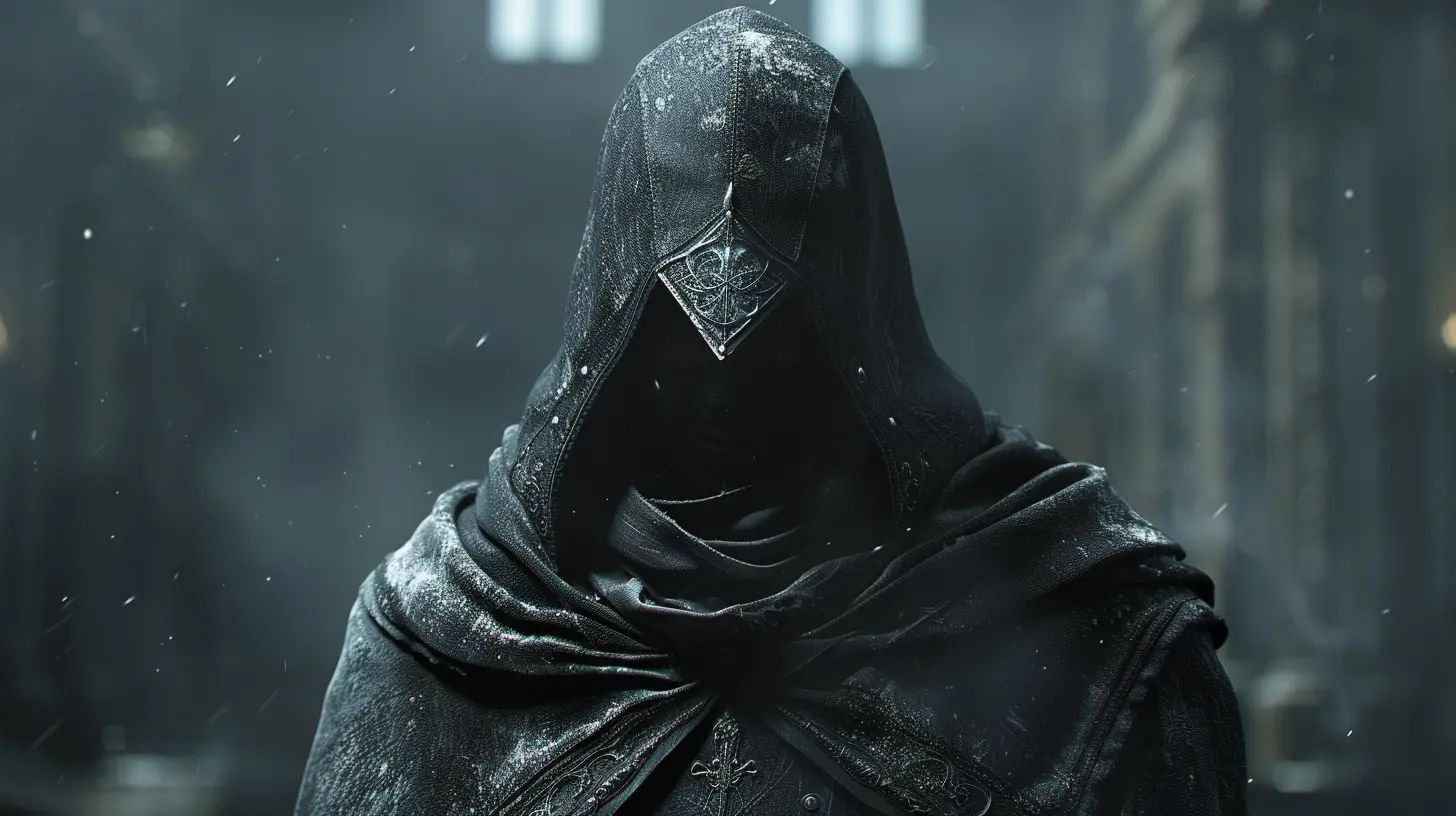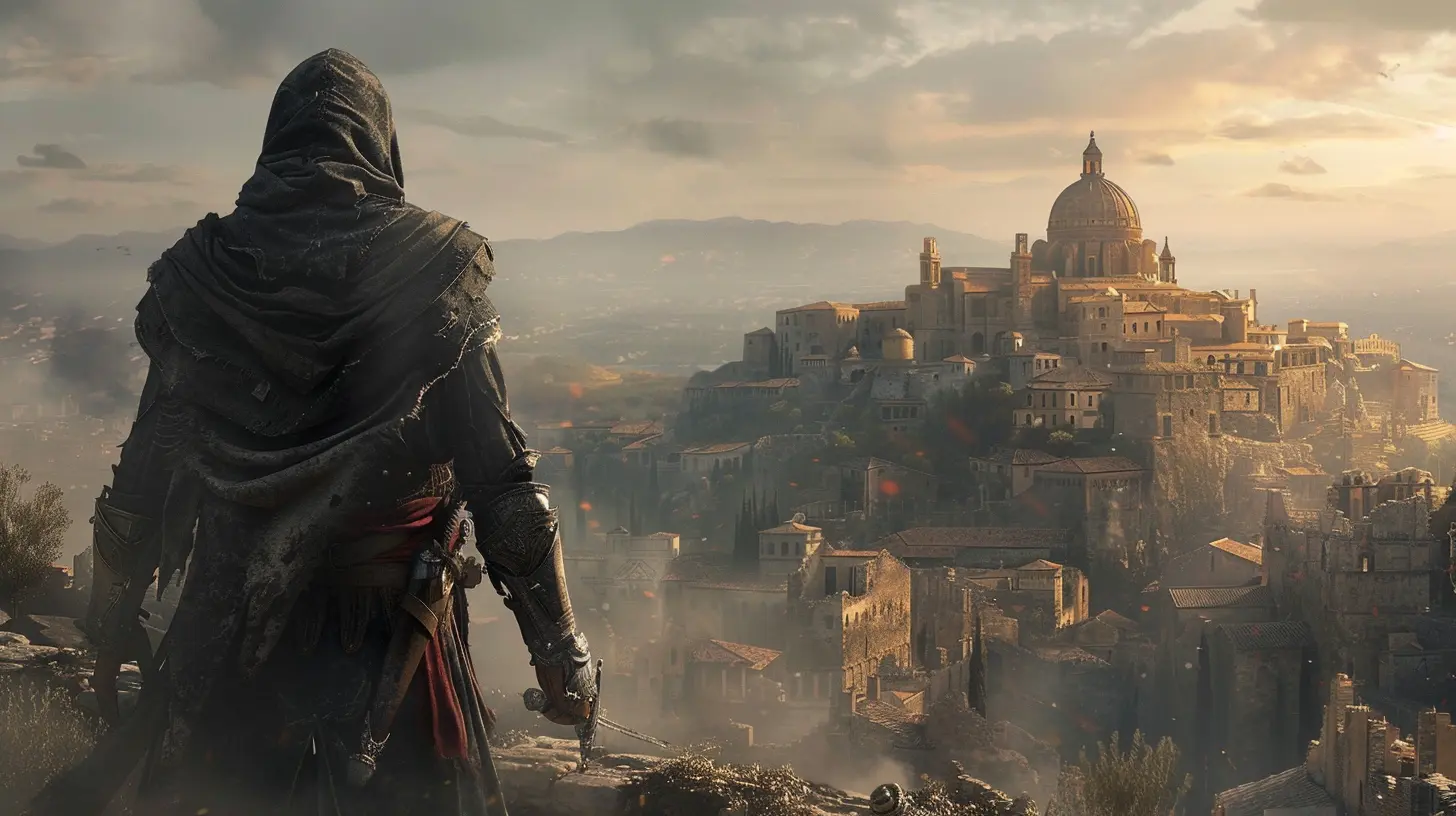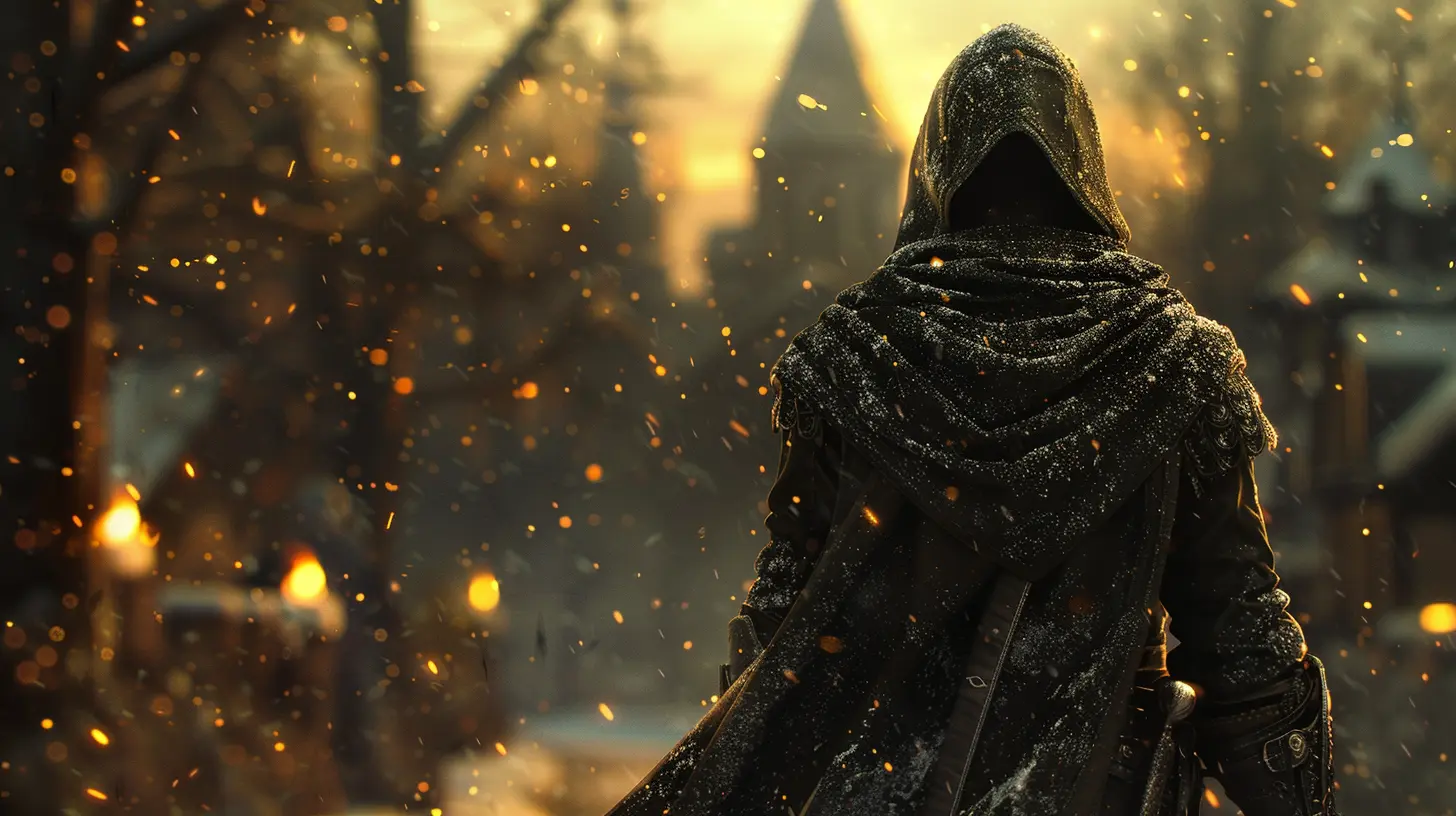Inside the Animus: The Historical Conspiracies of Assassin’s Creed
25 August 2025
If you’re a fan of intricate storytelling, thrilling historical backdrops, and a splash of conspiracy theory, you’ve probably spent countless hours diving into Ubisoft’s Assassin’s Creed series. From Renaissance Italy to Ancient Egypt, this franchise isn't just about parkour and hidden blades—it's a deep dive into history’s mysteries with a twist. But what makes these games so captivating? It's the way they seamlessly blend historical fact with compelling fiction, creating a world where you can't always tell what’s real and what’s made up. Let’s step inside the Animus and unravel the historical conspiracies of Assassin’s Creed.
The Animus: A Gateway to the Past
First off, let’s talk about the Animus. It’s not just the series' coolest sci-fi gadget—it’s the key to Assassin’s Creed’s entire narrative. The Animus lets characters relive the genetic memories of their ancestors. Sounds crazy, right? But it’s genius storytelling. This device blurs the line between historical truth and creative license, making each game feel both authentic and fantastical.Imagine having a time machine in your DNA that lets you experience centuries-old events firsthand. Wild, huh? That’s the beauty of the Animus. It’s the bridge between now and then, letting players immerse themselves in historical eras while uncovering long-lost truths (and a ton of conspiracies).
Templars vs. Assassins: A War for the Ages
The heart of Assassin’s Creed lies in the never-ending clash between two secret factions: the Templars and the Assassins. This isn't your ordinary good-versus-bad storyline, though. The series thrives on moral ambiguity—both sides think they’re doing the right thing.The Templars: Order Over Freedom
On one side, you've got the Templars. They’re all about control, order, and securing peace—through manipulation, if necessary. In their eyes, humanity is chaotic and self-destructive, and someone needs to call the shots. So, they latch onto powerful relics called Pieces of Eden—ancient artifacts capable of influencing minds. Feels a bit like Big Brother, doesn’t it?The Assassins: Freedom at Any Cost
On the flip side, you’ve got the Assassins. They’re the champions of freedom, fighting for humanity’s right to choose—even if it means making mistakes. Their motto? "Nothing is true; everything is permitted." Sounds rebellious, right? But that phrase is less about anarchy and more about the idea that we create our own truths.What makes this feud so gripping is how Ubisoft injects it into actual historical events. From infiltrating the Vatican to mingling with George Washington, the conflict is everywhere, entangled with real-world figures and happenings.
Historical Figures: Fact Meets Fiction
One of the coolest things about Assassin’s Creed is how it brings historical figures into the mix. And we’re not just talking about cameos—these legends are integral to the plot.Leonardo da Vinci: The OG Gadget Master
In Assassin’s Creed II, Leonardo da Vinci isn’t just a genius painter and inventor; he’s basically your tech guy. Need a wrist-mounted gun or a flying machine? Leo’s got you covered. It’s like if Q from James Bond lived in Renaissance Italy.Cleopatra and Julius Caesar: Power and Betrayal
Fast-forward to Assassin’s Creed Origins, where Cleopatra and Julius Caesar play pivotal roles. Though their historical stories remain intact, the game adds layers of intrigue by tying them to the Assassins and Templars. Ever wonder if Caesar’s infamous betrayal had otherworldly influences? Origins makes you think twice.George Washington: The Would-Be King
In Assassin’s Creed III, George Washington gets tangled up with a Piece of Eden. The game even explores an alternate history where he’s tempted by power and becomes a tyrant. It’s a bold “what if” scenario that asks: What happens when history’s heroes aren’t so heroic?
The Pieces of Eden: History’s Hidden Puppeteers
Speaking of those ancient artifacts, the Pieces of Eden are like the Swiss Army knives of chaos. These relics, created by the First Civilization (more on them later), are the ultimate MacGuffins. They’ve been influencing humanity for centuries, sparking wars, manipulating leaders, and even inspiring myths.Remember the Apple of Eden? It shows up in multiple games, capable of controlling minds and sparking deadly power struggles. It’s like the One Ring from The Lord of the Rings, but shinier and somehow more dangerous.
What’s wild is that the games weave these artifacts into real-world events. For example, the death of Joan of Arc? Yep, a Piece of Eden was involved. The Salem witch trials? You guessed it—more ancient meddling.
The First Civilization: A Godlike Twist
Now, let’s get into the deep lore—the First Civilization, also called the Isu. These guys are basically god-like beings who existed long before humans. Think of them as a mix between mythological deities and hyper-intelligent aliens. They created the Pieces of Eden, as well as humanity itself. (Yeah, talk about a bombshell.)But it doesn’t end there. The Isu’s downfall came from a massive solar flare (ouch), and their remnants linger on in human DNA. That’s why people like Ezio, Bayek, and even Desmond Miles can interact with the Pieces of Eden—they’ve got Isu blood in their veins.
This intertwining of mythology, science fiction, and history is what sets Assassin’s Creed apart. It’s like mixing ancient legends with The Matrix—and it works brilliantly.
Real-World Events: Reimagined
Assassin’s Creed doesn’t just sprinkle historical events into its narrative—it reimagines them entirely. Ever think about the Crusades, the Boston Tea Party, or the French Revolution in the context of shadowy organizations pulling the strings? That’s the kind of lens this series gives you.Take the French Revolution in Assassin’s Creed Unity. While you’re running through the chaos of Paris, you uncover how both the Assassins and Templars had a hand in the revolt. It’s a fresh perspective that makes you question everything you learned in history class.
Why Fans Keep Coming Back
So, why do players keep coming back for more? It’s not just about climbing tall buildings or pulling off stealthy assassinations (though that’s a big part of the fun). It’s the way the series makes you think. Every game is like a puzzle, urging you to dig deeper into history and ask, “What if?”The blending of history and fiction keeps things unpredictable. One moment you’re meeting Socrates, and the next, you’re decoding an Isu prophecy. It’s like being a history buff and a conspiracy theorist at the same time. Plus, with each new game, Ubisoft raises the stakes, diving into new eras and cultures while expanding the lore.
The Future of Assassin’s Creed
Looking ahead, the series shows no signs of slowing down. With upcoming titles like Assassin’s Creed Mirage, which promises a return to the roots of stealth and intrigue, the franchise is poised to keep breaking new ground. Whether we’re exploring feudal Japan or unraveling Viking legends, one thing’s for sure—the conspiracies will only get juicier.Final Thoughts
At its core, Assassin’s Creed is more than just a gaming series; it’s a cultural phenomenon. It’s a masterclass in blending history, fiction, and gaming into an experience that feels both educational and exhilarating. By questioning historical narratives and introducing just the right amount of “what ifs,” the series keeps us hooked, one leap of faith at a time.So, next time you play an Assassin’s Creed game, take a moment to appreciate the brilliance behind the historical conspiracies. Who knows? You might even find yourself questioning what’s real and what’s not. And isn’t that exactly what the Animus is all about?
all images in this post were generated using AI tools
Category:
Lore And StorylinesAuthor:

Kaitlyn Pace
Discussion
rate this article
1 comments
Calyx Kline
Who knew hiding in hay bales could unlock the secrets of history? Let’s be real—if I had a dollar for every conspiracy I jumped into, I’d still be broke! 😄
September 14, 2025 at 2:24 AM

Kaitlyn Pace
Right? The blend of history and conspiracy in Assassin's Creed makes for a thrilling ride! Who knew hay bales could be so revealing? 😄


